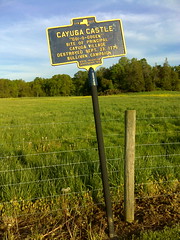
Originally Posted by
RTK

FM 1-02, Operational Terms and Graphics:
raid – (DOD, NATO) An operation, usually small scale, involving a swift penetration of hostile territory to secure information, confuse the enemy, or to destroy installations. It ends with a planned withdrawal upon completion of the assigned mission. See FM 3-0.
FM 3-90, Tactics
A raid is a form of attack, usually small scale, involving a swift entry into hostile territory to secure information, confuse the enemy, or destroy installations. It ends with a planned withdrawal from the objective area on mission completion (FM 3-0). A raid can also be used to support operations designed to rescue and recover individuals and equipment in danger of capture. (page 5-38)
FM 3-0, Operations
A raid is an operation to temporarily seize an area in order to secure information, confuse an adversary, capture personnel or equipment, or to destroy a capability. It ends with a planned withdrawal upon completion of the assigned mission (JP 3-0). Units routinely conduct raids as part of tactical
operations but sometimes as separate joint operations. The latter is characterized as a limited intervention. (FM 3-90 contains doctrine on tactical-level raids.) (page 2-6)
JP 3-0, Joint Operations
Raids are operations to temporarily seize an area, usually through forcible
entry, in order to secure information, confuse an adversary, capture personnel or equipment, or destroy an objective or capability (e.g., Operation URGENT FURY, Grenada 1983, to protect US citizens and restore the lawful government). Raids end with a planned withdrawal upon completion of the assigned mission. (Page V-27 to V-28)
AAP-6, NATO Glossary of Terms and Definitions
An operation, usually small scale, involving a swift penetration of hostile territory to secure information, confuse the enemy, or destroy his installations. It ends with a planned withdrawal upon completion of the assigned mission. (Page 2-R-3)









 . The intelligence just wasn't up-to-date to match conditions, and so they went with what they had. The fact that the prisoners were moved in July isn't even relevant.
. The intelligence just wasn't up-to-date to match conditions, and so they went with what they had. The fact that the prisoners were moved in July isn't even relevant.





 link to the history of US Paratroopers and Philippine Guerrillas and successful Raids.
link to the history of US Paratroopers and Philippine Guerrillas and successful Raids.

 ) and 'rooftocht' are not suitable for either of the Goose Green cases. They are more suitable descriptions for the kind of adventures mentioned up thread regarding North American Indian tribes (a 'stroper' is a poacher), and perhaps Viking-style raids. They imply some form of plundering. So again, a strooptocht can be a raid, but not all raids are strooptochten. I also wonder if 'raid' implies some notion of speed or immediacy, more so than a strooptocht.
) and 'rooftocht' are not suitable for either of the Goose Green cases. They are more suitable descriptions for the kind of adventures mentioned up thread regarding North American Indian tribes (a 'stroper' is a poacher), and perhaps Viking-style raids. They imply some form of plundering. So again, a strooptocht can be a raid, but not all raids are strooptochten. I also wonder if 'raid' implies some notion of speed or immediacy, more so than a strooptocht. 


Bookmarks